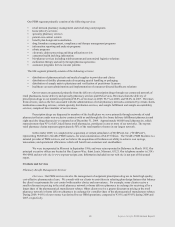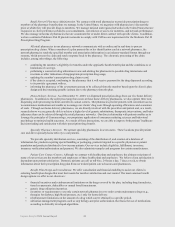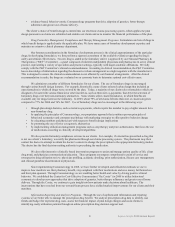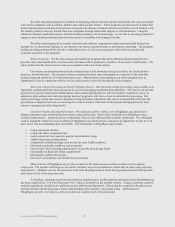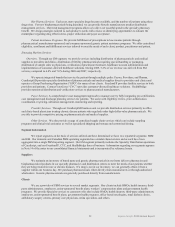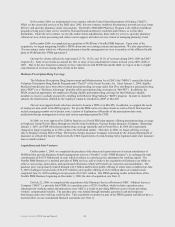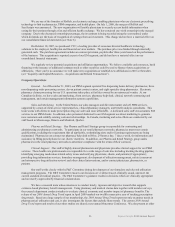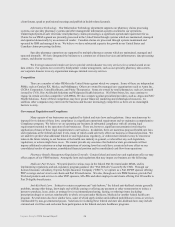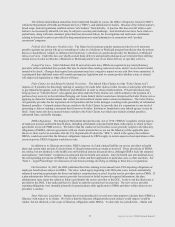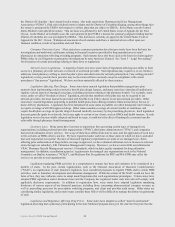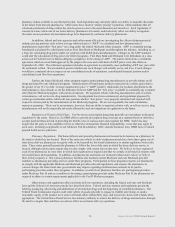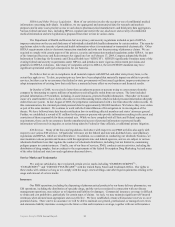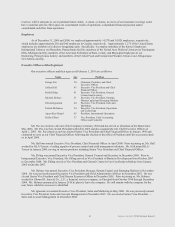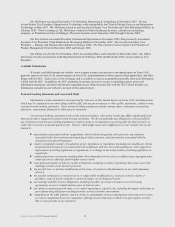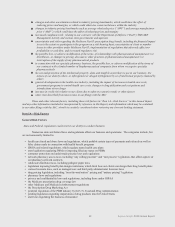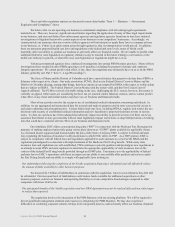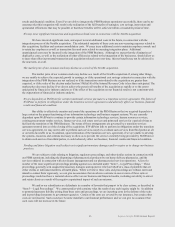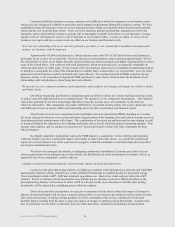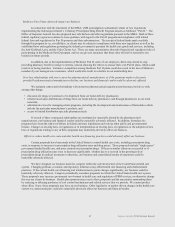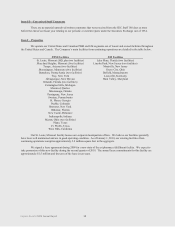Express Scripts 2009 Annual Report Download - page 30
Download and view the complete annual report
Please find page 30 of the 2009 Express Scripts annual report below. You can navigate through the pages in the report by either clicking on the pages listed below, or by using the keyword search tool below to find specific information within the annual report.
Express Scripts 2009 Annual Report 28
the District of Columbia – have enacted such a statute. Our trade association, Pharmaceutical Care Management
Association (“PCMA”), filed suit in federal courts in Maine and the District of Columbia alleging, among other things, that
the statute is preempted by ERISA with respect to welfare plans that are subject to ERISA. In the Maine case the United
States District Court upheld the statute. That decision was affirmed by the United States Court of Appeals for the First
Circuit. In the District of Columbia case, the court granted in part PCMA’s motion for summary judgment finding that the
District of Columbia law was preempted by ERISA. This decision is currently on appeal to the United States Court of
Appeals for the D.C. Circuit. Widespread enactment of such statutes could have a material adverse effect upon our
financial condition, results of operations and cash flows.
Consumer Protection Laws. Most states have consumer protection laws that previously have been the basis for
investigations and multi-state settlements relating to financial incentives provided by drug manufacturers to retail
pharmacies in connection with drug switching programs. Such statutes have also been cited as the basis for claims against
PBMs either in civil litigation or pursuant to investigations by state Attorneys General. See “Item 3 – Legal Proceedings”
for discussion of current proceedings relating to these laws or regulations.
Network Access Legislation. A majority of states now have some form of legislation affecting our ability to limit
access to a pharmacy provider network or removal of a network provider. Such legislation may require us or our clients to
admit any retail pharmacy willing to meet the plan’s price and other terms for network participation (“any willing provider”
legislation); or may provide that a provider may not be removed from a network except in compliance with certain
procedures (“due process” legislation). We have not been materially affected by these statutes.
Legislation Affecting Plan Design. Some states have enacted legislation that prohibits managed care plan
sponsors from implementing certain restrictive benefit plan design features, and many states have introduced legislation to
regulate various aspects of managed care plans, including provisions relating to the pharmacy benefit. For example, some
states, under so-called “freedom of choice” legislation, provide that members of the plan may not be required to use
network providers, but must instead be provided with benefits even if they choose to use non-network providers. Other
states have enacted legislation purporting to prohibit health plans from offering members financial incentives for use of
home delivery pharmacies. Legislation has been introduced in some states to prohibit or restrict therapeutic intervention, or
to require coverage of all FDA approved drugs. Other states mandate coverage of certain benefits or conditions, and
require health plan coverage of specific drugs if deemed medically necessary by the prescribing physician. Such legislation
does not generally apply to us directly, but it may apply to certain of our clients, such as HMOs and health insurers. If such
legislation were to become widely adopted and broad in scope, it could have the effect of limiting the economic benefits
achievable through pharmacy benefit management.
Licensure Laws. Many states have licensure or registration laws governing certain types of managed care
organizations, including preferred provider organizations (“PPOs”), third party administrators (“TPAs”), and companies
that provide utilization review services. The scope of these laws differs from state to state, and the application of such laws
to the activities of PBMs often is unclear. We have registered under such laws in those states in which we have concluded
that such registration is required. Because of increased regulatory requirements on some of our managed care clients
affecting prior authorization of drugs before coverage is approved, we have obtained utilization review licenses in selected
states through our subsidiary, ESI Utilization Management Company. Moreover, we have received full accreditation for
URAC Pharmacy Benefit Management version 1.0 Standards, which includes quality standards for drug utilization
management. In addition, accreditation agencies’ requirements for managed care organizations such as the National
Committee on Quality Assurance (“NCQA”), and Medicare Part D regulations for PDP and MA-PDPs may affect the
services we provide to such organizations.
Legislation regulating PBM activities in a comprehensive manner has been and continues to be considered in a
number of states. In the past, certain organizations, such as the National Association of Insurance Commissioners
(“NAIC”), an organization of state insurance regulators, have considered proposals to regulate PBMs and/or certain PBM
activities, such as formulary development and utilization management. While the actions of the NAIC would not have the
force of law, they may influence states to adopt model legislation that such organizations promulgate. Certain states have
adopted PBM registration and/or disclosure laws and the Company has registered under such laws and will comply with
applicable disclosure requirements. In addition to registration laws, some states have adopted legislation mandating
disclosure of various aspects of our financial practices, including those concerning pharmaceutical company revenue, as
well as prescribing processes for prescription switching programs, and client and provider audit terms. Other states are
considering similar legislation, and as more states consider these bills it will be difficult to manage the distinct requirements
of each.
Legislation and Regulation Affecting Drug Prices. Some states have adopted so-called “most favored nation”
legislation providing that a pharmacy participating in the state Medicaid program must give the state the best price that the



